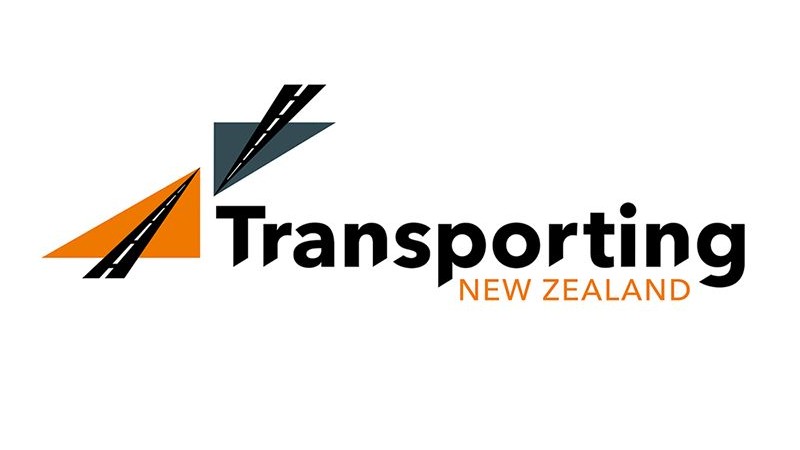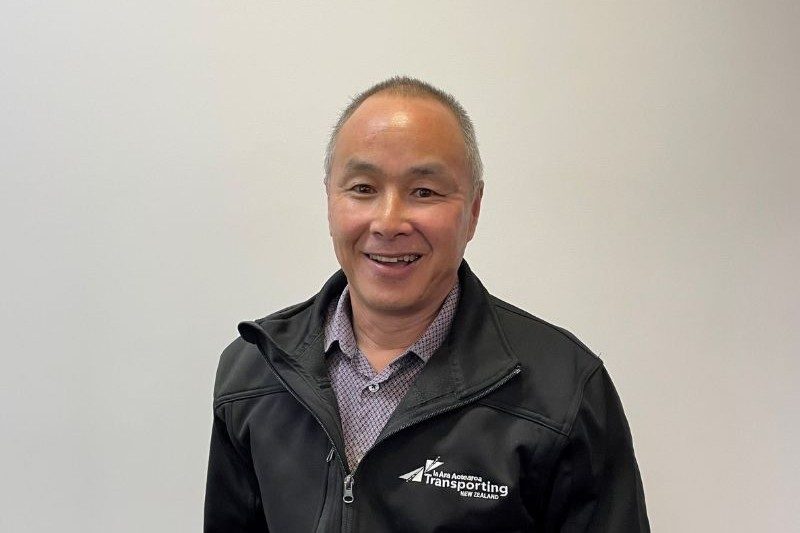The Road Ahead Conference 2022

Transporting New Zealand’s The Road Ahead Conference took place in September at Invercargill’s Ascot Park Hotel, to discuss what’s ahead for transport operators as the world looks to recover from the challenges of the Covid-19 pandemic. The conference focused on a changing workforce, sustainability and environmental requirements, future fuel sources, supply chain issues, and disruptors such as the digital revolution. Over the following five issues, we will summarise the key topics discussed. This issue, we look at the key points from Minister of Transport Michael Wood, National’s transport spokesperson Simeon Brown, and economist Cameron Bagrie.
Michael Wood
Minister of Transport
The most important area of the land transport sector is safety, according to Minister of Transport Michael Wood, who presented to the conference via Zoom.
“We all want to ensure that every time someone pops in their car, they are going to get home safely at the end of the day,” he says. “Yet in New Zealand, we have a record that doesn’t always live up to that.”
On average, one person is killed a day on New Zealand roads and around another seven are seriously injured.
Wood says the government’s Road to Zero strategy is about putting an end to “just accepting” poor road statistics.
“I think collectively, as a country, we’ve done this for too long. There wouldn’t be any other sector where we just accept that several hundred people die every year,” he says.
“In the language we use, for example, calling it the ‘road toll’ – we’re saying that this is the price you pay to use a piece of road. This puts us on the wrong pathway when really our approach should be to relentlessly focus on how we make sure that people are not killed or seriously injured on our roads.”
The government has an interim target to achieve a 40% reduction in death and serious injuries by 2030.
“It’s an ambitious target, but we know, based on evidence and international examples, that if we do the right things we can do it and we can save many lives.”
Wood says Road Zero is about looking at all the different levers across the land transport system.
“That means we need safer vehicles, safer drivers, safer roads, and safer speeds. It’s going to take all four of these if we really want to change the system.
“The government’s putting its money where our mouths are on this as well. We’re investing around about $2.7 billion to make sure that we support the actions that are necessary within Road to Zero,” he says.
“That’s across police enforcement, improvements to roads and making sure that we support drivers to be as safe and well-trained as possible. It’s about recognising that even the very best drivers will sometimes make mistakes, so we need to build and maintain a system that means those mistakes don’t become fatal or don’t cause a serious incident.”
Wood says the government is working on road safety penalties. “We know that discouraging bad choices through risk-taking with appropriate fines and penalties and good enforcement… backing that up can make a significant difference,” he says.
“We increased the penalties for cell- phone use last year, and we’re now carefully working through a package of proposals to make sure we are sending the right message to all road users about the need to work within the rules to keep everyone on the road safe.”
Wood says about 25% of the deaths on New Zealand roads involve a person who is driving to work. “We know that there are many players who have an impact here. The chain of responsibility holds that it is not only commercial drivers who are responsible for safety, but all the people and actors that influence driver behaviours,” he says.
“You’ll know about the pressure that comes on you and your teams from other players in the supply chain that can sometimes create unsafe situations. Those players have a responsibility as well and they must be held accountable if their influence results in non-compliance with traffic rules and laws, which puts people on the roads at risk.”

Simeon Brown
National Party transport
spokesperson
Meanwhile, National’s transport spokesperson Simeon Brown says the government needs to tackle underlying cost pressures and remove bottlenecks in the economy.
“This is a challenging time as we’ve moved from Covid through to a time with significant cost pressures, which are coming through to [the transport] industry, particularly with fuel prices that have reached record highs this year,” he says.
“There is a need to make sure that cost pressures are kept under control, and the government has a critical role in understanding the impact this has and how it flows through to every industry in New Zealand.”
Brown says the cost of living is the critical issue going into the next election. “There are many things outside of the government’s control, but there are also many things inside the government’s control,” he says. “And these are things that affect every single business up and down the country.”
Brown says there needs to be a focus on good policy and making sure we have a good transport policy that helps get New Zealand moving and stay connected.
“Trucking companies are often criticised for many things, whether it’s because people think there should be fewer trucks on the road, or they simply think that the supermarket shelves should be filled by rail,” he says.
“We must be realistic with transport policy. Ninety-three per cent of freight is moved by trucks on the roads, and that statistic is not going to change anytime soon, regardless of how much money the government decides to spend on railways.
“New Zealand is a sparsely populated country. It’s long, it’s narrow, and our roads are the lifeblood of the New Zealand economy. Primarily it’s trucks that move our freight and logistics around the country,” says Brown. “We understand how vital roads and our trucking companies are to economic productivity, and we’ll be 100% focused on supporting your industry and helping it to grapple with the challenges ahead,” he says. “We know there are big issues, and we want to focus on solutions that are practical and make a real difference for your industry.”
Brown says the National Land Transport Fund must be used to help make the transport system safer, more efficient, and more productive. “The transport fund has become diluted from its core purpose with more and more activities being added, which takes away from its core purpose, which is to make sure our roads are well maintained and to build new ones,” he says. “There is increasing concern about whether our roads are receiving the maintenance and renewals that they need, and whether our taxes and road user charges are being used appropriately from this fund.”
Brown also says there needs to be a longer-term plan regarding regional connections. “We need to have funding mechanisms that appropriately look at the costs that are charged and how we are allocating that resource and making sure that we’ve got better access to capital in terms of actually being able to take a longer-term view of how we spread the costs.
“We also need to have a plan around delivery, and that’s partially going to be how we break through some of the consenting challenges, which have held up equity projects for too long, and also the issue of making sure we’ve got skilled workers in New Zealand so we can get things done.”

Cameron Bagrie
Economist, Bagrie Economics
Economist Cameron Bagrie says New Zealand needs some brave and bold leaders. “One of the biggest problems we have across the country at the moment is that New Zealand is very fragmented. We are a very divided society. In fact, I’ve never seen New Zealand like this before,” he says.
“We have those conversations in our own houses or with our close friends about how this just doesn’t feel right, and I don’t see any political parties standing up with the recipe of how we’re going to mend it.
“A populous leader is just a leader that stands up and says, ‘I’m gonna put money in your pocket – whether that be spending or via tax cuts.’ We don’t need that sort of leadership. We want real leadership, and I’m not seeing too many step up.”
Bagrie says now is the time for businesses to start thinking about market share. “It’s not fun making money when everybody’s making money. I don’t like that environment when the market’s going up; everybody looks like a rockstar. I like a tough market because a tough market sorts out who’s any good at anything,” he says.
“And what you need to be thinking about over the next two to three years is this thing not called the market, but market share, which is a fancy way of saying, ‘ripping the throat out of the competition’.
“If you do well and your competitor does not, when you go home on a Friday night and you crack open that bottle of beer or that bottle of wine – that’s gonna taste extra sweet because your endeavours are going to reflect your work, not the market covering your backside.”
While the New Zealand economy is looking good, Bagrie says there are some cracks.
“We have low unemployment, bank non-performing loans are low, strong corporate balance sheets, and low levels of government debt. But then there are the other things we are noticing, like inflation.
“Inflation is just a corrosive lack of leadership,” he says.
Bagrie says there has been a lot of damage done to businesses’ money lines over the past 12 months. “The money line, or supply line, is the truck and the staff member. If your truck’s not working for a day because you don’t have demand to use that truck, you can wear that. If your truck isn’t working for a week because your staff has taken an extra week of sick leave or you can’t get a part to fix your truck, that’s damage to your capability. That is the line that hurts. And what I think happened across New Zealand in the past 12 months is that we’ve done a lot more damage to our capability – or the money line – and we need to be focusing on reconnecting that line.
“Going back to have a look at what we saw in the 1970s and 1980s, this is how it works,” Bagrie says. “Inflation moves up and your staff member says they need to be compensated for inflation. So, you force up wages, and that adds on to costs, this adds costs onto inflation, and the mouse on the exercise wheel is going round and round. That is the playbook, or the merry-go-round, that we need to break.”
Bagrie says to stop inflation from getting passed onto the end consumer, there needs to be a variable that stops it in the middle, and unfortunatey, it will be business margins that will start to suffer.
“So, if you are a business owner at the moment, your margins are your number-one issue to be focusing on because that goes right to the bottom line,” he says.
“This is about having strategies to pass on price increases; anything you can do to give yourself a little bit of wriggle room within that margin or give yourself a little bit of control.”



